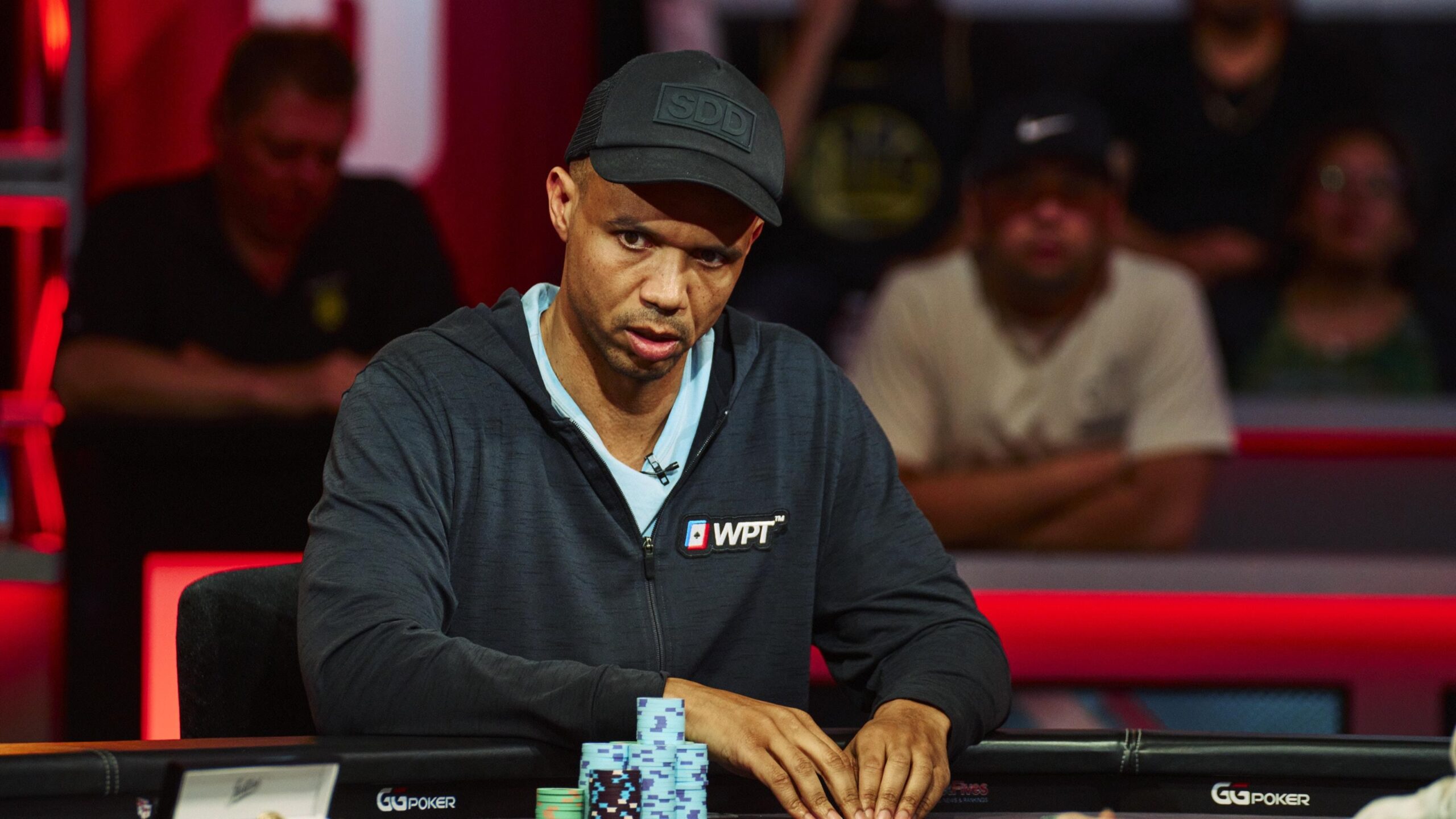The world of gambling is as dynamic as it gets, especially in South Africa, where the betting culture is strong, and the excitement of wagering on sports and games is part of everyday life. If you’ve ever found yourself scratching your head and wondering why some games seem to have worse odds on weekends, you’re not alone. This article will dive deep into the reasons behind this phenomenon, looking at factors such as market dynamics, betting patterns, and how bookmakers operate.
Understanding Betting Odds: A Quick Recap
Before diving into why some games seem to have worse odds on weekends, it’s crucial to really get a firm grip on what betting odds are and how they operate. Betting odds are more than just numbers; they’re a direct representation of probability, carefully crafted by bookmakers to balance risk and reward. When you see odds attached to a sporting event, casino game, or even esports match, what you’re really seeing is a prediction of the likelihood of an outcome — expressed in a way that also ensures the house maintains a profit over time. Odds essentially answer two questions: how likely something is to happen and how much you’ll earn if you bet on it and win. They are the cornerstone of any betting experience, shaping not just the potential payout but also subtly guiding player behavior.
Odds are typically expressed in different formats — decimal, fractional, or American — depending on the region and platform. Regardless of format, the underlying principle remains the same: the higher the odds, the less likely an event is expected to happen, but the bigger your payout if it does. Conversely, lower odds suggest a greater chance of success but offer a smaller reward. It’s a balancing act that keeps both bettors and bookmakers engaged. For example, if you’re backing an underdog soccer team with 8.00 decimal odds, you’re taking a bigger risk for a higher payout. Meanwhile, betting on a favorite with 1.40 odds usually means a safer bet, but the return will be modest. Understanding this relationship between probability and reward is essential if you want to bet smart, not just bet for the thrill of it.
But it’s not just pure math behind these odds. Bookmakers don’t operate in a vacuum — they adjust odds based on a multitude of external factors. Player injuries, team form, weather conditions, public sentiment, and even media buzz can influence the odds on a given event. Behind the scenes, sophisticated algorithms crunch massive volumes of data to set the initial odds, but human oddsmakers still play a role, tweaking figures to respond to real-world changes and betting patterns. The goal is not just to predict the outcome accurately, but to create odds that attract balanced action on all sides, ensuring that the sportsbook makes money no matter which side wins.
Why Do Odds Change on Weekends?
So, why do some games in South Africa seem to have worse odds on weekends? Let’s explore the reasons behind this phenomenon in a detailed list.
- Increased Betting Activity
Weekends are when people have more free time and tend to place more bets. This surge in betting activity leads to higher money circulation in betting markets, which can cause bookmakers to adjust the odds. More people placing bets means more risk for the bookmaker, and to ensure profitability, they adjust the odds to balance the risk and reward, often leading to lower odds on popular games. - The Influence of Public Sentiment
On weekends, the focus of bettors shifts towards high-profile sports events, which are heavily covered by the media. In South Africa, sports like soccer, rugby, and cricket dominate the weekend. The hype and attention around these events lead to an increase in bets placed on the popular outcome. To avoid taking on too much risk, bookmakers adjust the odds, often lowering them on the favorite team or player, to manage the influx of bets based on public sentiment. - The Impact of Local Events and Holidays
Weekends, especially those around public holidays or major local events, often attract a large crowd of bettors. Events like national rugby matches or cricket games scheduled on weekends drive up the number of bets placed. Since these events attract more attention, bookmakers adjust the odds to account for the higher demand, which can lead to fluctuating odds, especially for the most popular games or teams. - Supply and Demand Dynamics
Betting odds are heavily influenced by supply and demand. Weekends bring higher demand for certain games, especially during peak betting hours. Popular matches like soccer or rugby games scheduled on weekends tend to see increased demand, and to maintain their margins, bookmakers adjust the odds. This adjustment occurs to ensure that they don’t end up overexposed to a single outcome, and it typically results in worse odds for bettors. - Changes in Market Liquidity
As weekends see higher betting volumes, the market liquidity increases. With more people placing bets, bookmakers need to adjust the odds more frequently to maintain balance in the market. The odds are shifted to ensure that both sides of the bet are attracting enough attention and money. Higher liquidity can lead to frequent changes in the odds to balance the action. - Bookmaker Strategy and Profit Margins
Bookmakers use weekends to adjust their strategies and protect their profits. They know that casual bettors tend to place wagers on favorites, especially with the extra media attention these games receive. In order to safeguard their profit margins, bookmakers lower the odds on the favorites, making them less appealing while still attracting enough action on both sides.
How Bookmakers Adjust to Weekend Betting Activity
| Adjustment Method | Description | Purpose | When It’s Used | Impact on Bettors |
| Dynamic Odds Adjustment | Bookmakers adjust odds in real-time based on the volume and pattern of bets. | To balance the betting pool and reduce the risk of substantial losses. | Common during popular events with high betting volumes, like rugby or soccer matches. | Odds for favorites are lowered, and underdog odds are increased to encourage more balanced betting. |
| Limitations on Betting | Bookmakers may place limits on the maximum amount that can be wagered on certain games or outcomes. | To control the volume of money wagered on popular events and mitigate excessive exposure. | Often implemented during major events with high media attention, such as finals or championships. | Limits prevent large-scale betting on a single outcome, potentially making it harder for bettors to place big bets. |
| Using Betting Algorithms | Algorithms analyze data from betting patterns, historical trends, weather, and more to adjust odds. | To make quick, data-driven adjustments to maintain profitability and minimize risk. | Activated over the weekend when betting data floods in rapidly. | Odds change frequently and may shift quickly, making it challenging for bettors to lock in favorable odds. |
| Adjusting Market Liquidity | Liquidity refers to the ease with which bets can be placed. Bookmakers adjust odds based on liquidity changes. | To ensure enough betting action on both sides of the wager and maintain balanced markets. | When liquidity increases due to a surge in weekend betting activity. | Odds may become less favorable as bookmakers try to balance the market, especially when one outcome is heavily favored. |
| Setting Maximum Payouts | Bookmakers may limit the maximum payout on certain bets or events to control exposure. | To limit their risk on events with high betting volume and to protect themselves from large payouts. | Typically used for high-stakes events like weekend soccer games or popular rugby matches. | Bettors may not be able to win as much on certain outcomes due to capped payouts, reducing potential returns. |
The Role of Weekend Trends in Sports Betting
The weekend plays a significant role in shaping betting trends, particularly in South Africa, where sports like rugby, soccer, and cricket dominate the weekend sports calendar. The popularity of these sports means that bookmakers face higher volumes of bets, and the odds tend to shift to reflect the increased activity. As more people have free time on weekends, there is a natural increase in betting engagement. This surge in demand can result in odds changing significantly, especially for popular events where a large number of bettors are focused on similar outcomes.
In South Africa, rugby and soccer games are particularly prominent on weekends. These games often feature major local and international teams, making them highly anticipated by bettors. The increased attention on these games leads to lower odds for the favored team, as many bettors expect a straightforward win. Bookmakers adjust the odds in real-time to ensure that they maintain a balanced betting pool, preventing any significant losses in the event the popular outcome occurs. This adjustment process is critical for bookmakers, as it helps them mitigate the risks associated with a high volume of bets and maintains profitability.
Cricket is another sport that sees a major surge in betting activity over the weekend. The national cricket team often plays during peak times, which attracts a large number of bettors. The betting trends around cricket matches are dynamic, and the odds for the underdog can fluctuate significantly depending on how the market reacts to early betting patterns. For example, if the majority of bets come in favor of one team, bookmakers may adjust the odds for the opposing team to attract more bets and balance the risk. This creates an environment where odds can shift dramatically based on market movements, making it more challenging for bettors to lock in favorable outcomes.
Factors That Influence Weekend Betting Odds in South Africa
To better understand the shifts in odds during the weekends, it’s essential to take a closer look at the key factors that influence betting patterns and how they impact the odds. Below are the major elements at play:
- Higher Betting Volume
- Weekends bring in more bettors compared to weekdays, as people typically have more free time to engage in betting. The increased betting volume on popular games, such as rugby, soccer, and cricket, puts pressure on bookmakers to adjust the odds to balance the betting pool. The higher number of bets can lead to shifts in the odds, with bookmakers either lowering or raising them depending on how the bets are being placed. As a result, the more bets that are placed, the more likely the odds will change to ensure the bookmaker doesn’t face too much exposure.
- Media Coverage
- Sports events that receive more media attention naturally attract a larger number of bettors. For example, major games that are widely covered on television, radio, and social media can cause bettors to flock to specific outcomes. As the public sentiment leans more towards a certain result, bookmakers may adjust the odds to reflect this trend. This means that games receiving substantial media coverage often see worse odds for the favored teams, as bookmakers react to the popularity and predictability of the bets. Essentially, more exposure leads to more bets, and more bets mean bookmakers need to adjust their odds accordingly.
- Event Scheduling
- Major sports events, whether local or international, are often scheduled on weekends, creating a surge in betting activity. High-profile matches such as local rugby derbies, international soccer competitions, or national cricket games are prime examples of events that increase betting volume. When these events are scheduled on weekends, bookmakers often face an influx of bets. This surge in betting activity can result in significant shifts in the odds, as bookmakers work to manage the risk of large payouts on popular outcomes. Essentially, when an event is scheduled at a peak time, it leads to a more competitive betting market, forcing bookmakers to adjust the odds to ensure profitability.
How Bettors Can Navigate Weekend Odds
| Tip | Description | Best Time to Apply | Why It Works | Example |
| Bet Early | If you have a strong feeling about a particular game or event, consider placing your bet earlier in the week. This way, you avoid the odds being driven down by the weekend rush. | Early in the week, before the weekend rush | Betting early locks in better odds before they adjust due to increased betting activity. | Betting on a favorite soccer team before Saturday’s match |
| Monitor Odds Fluctuations | Use betting platforms that allow you to track real-time changes in odds. By monitoring these fluctuations, you can place your bet when the odds are more favorable. | Continuously, especially before the weekend surge | Real-time tracking enables you to capitalize on temporary fluctuations in odds. | Betting on a rugby match right after the odds dip |
| Bet on Underdogs | While favorites are often popular picks, the odds on underdogs can sometimes increase due to weekend betting trends. A well-timed bet on an underdog could yield higher rewards. | When public sentiment is heavy on favorites | Underdogs can provide higher payouts, and the weekend’s betting trends might skew odds in their favor. | Betting on an underdog cricket team during weekend play |
| Look for Less Popular Games | Smaller or niche events and sports often experience less betting volume and are less affected by the weekend rush. These events may offer better odds. | During weekends when mainstream sports dominate | Lesser-known events don’t attract as many bets, leaving room for better odds with less market saturation. | Betting on a lesser-known tennis tournament or horse race |
The Psychology of Weekend Betting
During the weekends, bettors tend to experience a shift in mindset that significantly impacts their betting behavior. This psychological shift is largely influenced by the availability of free time, as many people are not working and have more leisure hours to spend on activities like sports betting. When the workweek ends, bettors often feel less stressed and more relaxed, which can lead to more spontaneous and impulsive betting decisions. This shift in mindset can contribute to a greater volume of bets being placed, particularly on popular events, which, in turn, affects the odds being offered by bookmakers.
On weekends, the overall mood is often more carefree, with individuals using betting as a form of entertainment rather than a more serious, calculated investment. This sense of freedom and the idea of “weekend fun” can drive people to take more risks, especially in high-profile events. As a result, they may place bets on their favorite teams or athletes, even when the odds are not in their favor, simply because they want to participate in the excitement of the moment. Bookmakers, aware of this psychological behavior, adjust their odds to accommodate these betting patterns and protect their margins.
Additionally, the social aspect of betting on weekends cannot be ignored. Many people engage in betting as part of social gatherings, either in person or online, making it more of a social activity than a solitary one. This is particularly true for sports events like rugby, soccer, and cricket, which have large fan bases in South Africa. When bettors are part of a group, they are often influenced by the opinions of others, which can further fuel impulsive betting behavior. If a group collectively backs a particular team, the odds for that team might be adjusted due to the increased betting volume.




